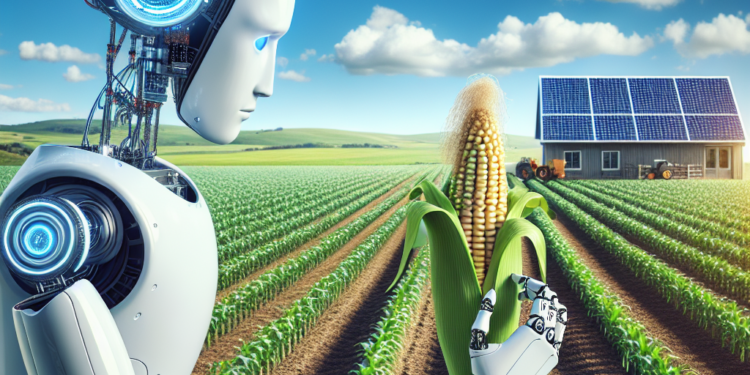As technology continues to advance, one industry that has seen significant improvements and innovations is agriculture. Precision agriculture, also known as smart farming or precision farming, is a farming management concept that utilizes technology to optimize agricultural production and efficiency. One of the key technologies driving this concept is artificial intelligence (AI). AI has the potential to revolutionize the way we approach farming and could help address some of the challenges facing the agricultural industry today.
AI in precision agriculture technologies encompasses a wide range of applications, from autonomous tractors and drones to predictive analytics and machine learning algorithms. These technologies have the potential to increase yields, reduce costs, minimize environmental impact, and improve overall efficiency in farming operations. In this article, we will explore some of the key AI technologies that are shaping the future of agriculture.
1. Autonomous Tractors
One of the most significant advancements in precision agriculture technology is the development of autonomous tractors. These self-driving machines use AI algorithms to navigate fields, plant seeds, apply fertilizer, and harvest crops with precision and efficiency. Autonomous tractors can work around the clock, without the need for human intervention, allowing farmers to maximize their productivity and reduce labor costs. These machines are equipped with sensors, cameras, and GPS technology to accurately monitor and control farming operations in real-time.
2. Drones
Drones are another important technology that is being used in precision agriculture. These unmanned aerial vehicles (UAVs) are equipped with cameras and sensors that can capture high-resolution images of crops, soil, and other aspects of the farm. AI algorithms are then used to analyze these images and provide valuable insights to farmers, such as crop health, moisture levels, and pests and diseases. Drones can also be used to spray pesticides and fertilizers with precision, reducing the amount of chemicals used and minimizing the environmental impact.
3. Predictive Analytics
Predictive analytics is a powerful tool that uses AI algorithms to analyze historical data and predict future outcomes. In agriculture, predictive analytics can be used to forecast crop yields, optimize planting schedules, and manage irrigation and fertilizer applications. By analyzing factors such as weather patterns, soil conditions, and crop genetics, farmers can make more informed decisions that result in higher yields and lower costs.
4. Machine Learning Algorithms
Machine learning is a subset of AI that uses algorithms to analyze and learn from data, without being explicitly programmed. In agriculture, machine learning algorithms can be used to optimize crop rotation, predict crop diseases, and improve livestock management. These algorithms can adapt and improve over time, making them a valuable tool for farmers looking to increase efficiency and productivity.
5. Soil and Crop Monitoring
AI technologies are also being used to monitor soil health and crop conditions in real-time. Sensors and IoT devices can be deployed in the field to collect data on factors such as moisture levels, nutrient content, and temperature. AI algorithms can then analyze this data and provide recommendations on how to improve soil health, optimize irrigation, and prevent disease outbreaks. By monitoring soil and crop conditions closely, farmers can make timely decisions that result in healthier crops and higher yields.
6. Supply Chain Optimization
AI technologies are also being used to optimize the agricultural supply chain. By analyzing data on factors such as demand, weather patterns, and transportation costs, AI algorithms can help farmers and distributors optimize their logistics and distribution networks. This can result in lower costs, reduced waste, and faster delivery times, benefiting both farmers and consumers.
7. Sustainability and Environmental Impact
One of the key benefits of AI in precision agriculture technologies is its potential to promote sustainability and reduce the environmental impact of farming. By optimizing resource usage, reducing chemical inputs, and minimizing waste, AI technologies can help farmers operate more efficiently and sustainably. This not only benefits the environment but also improves the long-term viability of farming operations.
In conclusion, AI technologies have the potential to revolutionize the way we approach agriculture and address the challenges facing the industry today. From autonomous tractors and drones to predictive analytics and machine learning algorithms, these technologies are helping farmers increase yields, reduce costs, minimize environmental impact, and improve overall efficiency in farming operations. As technology continues to advance, we can expect to see even more innovative AI solutions that will shape the future of agriculture for years to come.













